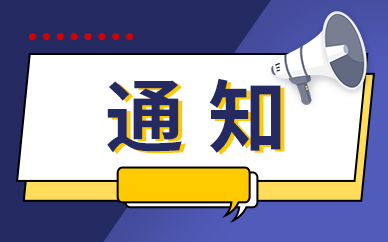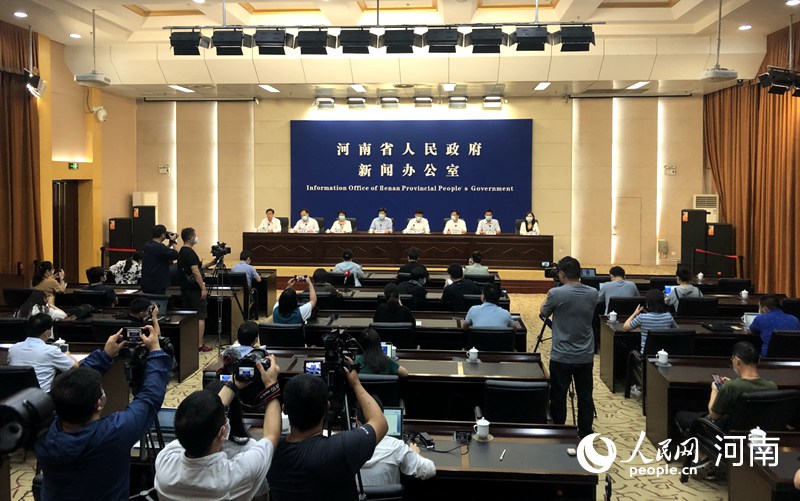Xinhua Headlines: Japan's plan to dump nuke-contaminated water into sea stokes real-life Godzilla fears
*Despiteongoingoppositionfrombothhomeandabroad,JapanhasbeenrushingtocarryoutitsplanofdumpingradioactivewastewaterfromthecrippledFukushimaDaiichinuclearpowerplantintothePacificOcean,raisinggrowingangerandstokingreal-lifeGodzillafearsamongtheglobalcommunity.
*AccordingtoaResearchViewsurveyof1,000SouthKoreanadultsconductedlastmonth,85.4percentoftherespondentsopposedJapan"scontaminatedwaterdischarge,and72percentsaidtheywouldreducetheconsumptionofmarineproductsifthewastewaterisreleasedintotheocean.
 (资料图片仅供参考)
(资料图片仅供参考)
*AmidJapan"srecklessdischargepush,localfisheryindustryandseafoodbusinesses,whoselivelihoodsareatstake,reiteratedtheiroppositionandgraveconcern.
TOKYO, June 23 (Xinhua) -- Despite ongoing opposition from both home and abroad, Japan has been rushing to carry out its plan of dumping radioactive wastewater from the crippled Fukushima Daiichi nuclear power plant into the Pacific Ocean, raising growing anger and stoking real-life Godzilla fears among the global community.
People rally to protest against Japan"s planned discharge of nuclear-contaminated water in Seoul, South Korea, June 12, 2023. (Xinhua/Wang Yiliang)
Tokyo Electric Power Company(TEPCO), the plant"s operator, began trialing the equipment for discharging the nuclear-contaminated water into the Pacific on June 12. The test run of the discharge facility is expected to finish on June 26. The nuclear wastewater release led by the Japanese government seems to have entered the countdown.
While the radioactive, 50-meter-tall Godzilla depicted in one of the highest-grossing films may be fictional, symbolizing the consequences of underwater nuclear tests, the Japanese government"s reckless discharging, likewise disastrous, is evoking fears that the allegory of humankind"s wrongdoings will come true.
WORLDWIDE FURY
"Nuclear-contaminated water must not be discharged into the sea. It is a crime, a crime against all living things on earth!" shouted Tatsuko Okawara outside the Fukushima Prefectural Government Office, where a mass rally was held last week to voice strong opposition to the Japanese government"s wastewater dumping move.
"The mountains and rivers will never return to the past, and the radiation will not disappear easily. But this country puts making money first compared to life and love," the Fukushima resident from Tamura city recited a line from a puppet show she created, unveiling the hidden truth behind the government"s relentless push.
Among the nearly 100 protesters who gathered for parades, rallies and petitions on Tuesday was Chiyo Oda, one of the rally"s organizers and co-representative of Koreumi, a Japanese citizens" conference to condemn further ocean pollution.
"The government says every day that the trial operation will end soon, making everyone feel that the ocean discharge is a fact, and wants us to give up. But it is wrong to discharge nuclear-contaminated water into the sea, and there are still places for the water storage tanks, so it has not reached the point where it must be discharged," she told Xinhua.
A sign that reads "Do not dump contaminated wastewater into the sea" is pictured during a protest near the headquarters of Tokyo Electric Power Company in Tokyo, Japan, March 11, 2023. (Xinhua/Zhang Xiaoyu)
Masuko Eiichi, from the prefecture"s Koriyama city, also criticized the discharge plan at the gathering, saying, "These storage tanks for nuclear-contaminated water can be stored for a long time as long as the government and TEPCO want to. But they have chosen the cheapest way to deal with them by discharging the wastewater into the sea."
Regarding the government referring to the diluted nuclear-contaminated water as "treated water," Sakurai from Niigata Prefecture said it is a fraud to confuse the public. According to Eiichi, nuclear-contaminated water can be diluted, but the total amount of nuclear pollutants discharged remains unchanged.
"Moreover, there are not only the radioactive element tritium in the water but also 57 kinds of radioactive substances such as cesium and strontium that cannot be removed," he added.
In the petition submitted to the Fukushima prefectural government, the participants said, "In the absence of a quantitative determination of all radioactive substances in the contaminated water, discharging the water into the sea will cause many radioactive substances to spread to the entire Pacific Ocean through the coastal waters of Fukushima, and then pollute the global marine environment ..."
Countries in the region have also expressed their vehement opposition to the discharge plan.
In South Korea, thousands of fishermen took to the streets to protest against Japan"s disposal plan on June 12, when the test run of the discharge facility started. They rallied near the parliamentary building in Seoul, holding signs that read "Desperately oppose the Fukushima radioactive contaminated water discharge into the sea" and "SOS!! Pacific Ocean!"
During the 53rd regular UN Human Rights Council session on Thursday, a Chinese representative urged Japan to earnestly address the international community"s legitimate concerns. The representative emphasized that Japan"s unilateral decision violates its obligations under the United Nations Convention on the Law of the Sea. Japan has yet to provide convincing evidence regarding the discharge"s safety.
Earlier this month, Russian Foreign Ministry Spokesperson Maria Zakharova criticized Japan for failing to demonstrate the desired level of openness on the wastewater disposal. Given Japan"s history in nuclear safety, she said that Russia could not allow the situation to develop without proper scrutiny.
People protest against the Japanese government"s plan to discharge nuclear-contaminated water into the sea in Fukushima, Japan, June 20, 2023. (Xinhua/Zhang Xiaoyu)
WIDESPREAD PANIC
According to a Research View survey of 1,000 South Korean adults conducted last month, 85.4 percent of the respondents opposed Japan"s contaminated water discharge, and 72 percent said they would reduce the consumption of marine products if the wastewater is released into the ocean.
On rising worry about Japanese fishery products ahead of the planned discharge this summer, local media reported South Korea"s import of Japanese seafood plummeted for the second consecutive month.
The import of Japanese seafood, including live, refrigerated and frozen fish as well as shellfish, dropped 30.6 percent over the year to 2,129 tons in May, after sinking 26.0 percent in April, Yonhap news agency said Monday, citing data from the Korea Customs Service.
On fears that Japan would push ahead with its discharge plan, salt demand in South Korea has soared over the past months.
Online transactions of salt products increased by 817 percent between June 7-13, compared to the same period a week earlier, according to online price comparison service provider Danawa.
Offline sales of salt also surged. As reported by the Korea Herald, data from South Korea"s largest supermarket chain E-mart revealed that its salt sales from June 1 to 14 increased by 55.6 percent compared to last year, while sea salt sales jumped 118.5 percent.
A statement issued by the Pacific Islands Forum (PIF) on Tuesday confirmed the second technical dialogue on Fukushima wastewater was held on June 9 between the PIF independent scientific experts and the International Atomic Energy Agency.
Experts expressed concerns about TEPCO"s need for more research on the impact of water discharge from Fukushima on marine species in the Pacific region. This prevented them from providing informed decisions to PIF members regarding the impact on the surrounding ecosystem and food security.
This photo taken on March 6, 2023 shows the Fukushima Daiichi nuclear power plant seen from Futabacho, Futabagun, Fukushima Prefecture, Japan. (Xinhua/Zhang Xiaoyu)
HARM TO LIVELIHOODS
Amid Japan"s reckless discharge push, local fishery industry and seafood businesses, whose livelihoods are at stake, reiterated their opposition and grave concern.
Masanobu Sakamoto, president of the national federation of fisheries cooperatives known as JF Zengyoren, on Thursday handed over a request opposing the release plan to Japanese Minister of Economy, Trade and Industry Yasutoshi Nishimura, local media reported.
Sakamoto said the federation"s opposition to the discharge would not change, and the government should take full responsibility. However, despite the fishery workers" concerns, Nishimura reportedly maintained that the release is unavoidable.
Earlier Tuesday, local seafood business owners in Fukushima questioned government officials during a study session at Iwaki city"s central wholesale fish market, demanding a sufficient explanation about the discharge.
An attendant in the sector said the government and TEPCO should think closely about why people are skeptical about the safety of marine products caught in waters near the plant. Another participant said fish stores would face questions from consumers about the safety of seafood, according to the NHK.
Koji Suzuki, head of a fishery company who organized the session, said he opposes the plan. Stakeholders in the industry, who continue to wait for an explanation of the release plan, need additional information that can be shared with the customers who doubt the safety of seafood.
Fishermen wait for fishing boats on a bank in Soma City, Fukushima Prefecture, Japan, March 8, 2023. (Xinhua/Zhang Xiaoyu)
In a recent interview with Xinhua in Suva, Fiji, Kalinga Seneviratne, a visiting lecturer at the University of the South Pacific, said Japan should respect the South Pacific Nuclear Free Zone Treaty, inked by PIF members in 1985, which explicitly prohibits activities such as testing, manufacturing, and stationing nuclear explosive devices and dumping nuclear waste within the zone.
"The contamination will also affect the South Pacific Nuclear Free Zone Treaty areas when it eventually flows there. Also, since fish stocks are migratory, contaminated fish could be caught within the treaty area," he said.
"If Japan wants to protect a rules-based order, they need to subscribe to the principles of these rules and respect the wishes of the people in the Pacific who argue the treaty is there to stop something like this happening," Seneviratne said. "Japan should refrain from contaminating the sea with nuclear waste."
关键词:









